So I don’t think I’ve posted anything about dyeing recently, other than my post on my first screen printing attempt. Well I picked up some green Tulip “Fabric Dye” in the Walmart clearance section the other day for 50 cents. I can hardly resist anything that costs 50 cents, and it seemed like fun (these little packets of dye normally cost 3 or 4 dollars each – crazy mark up)!
Well I glanced quickly at the back before purchasing it and saw it says it works best on cotton, rayon and silk which are all natural fibers. I guessed it must be fiber reactive, one of my favorite dyes to use since it means I can use it for shibori (the Japanese art of knotting, folding and binding fabric before dyeing to produce beautiful results). Further research suggested I was right that it is a form of fiber reactive dye.
I received this awesome pattern from burdastyle for free a couple months ago and have been waiting to try it. You all know how much I am into hippie chic lately. I decided to whip up the pattern in some bleached linen (a natural fiber made from flax) I had purchased months ago from fabric-store.com on clearance, then dye it in shibori style. (For the record, tie dye is a form of shibori, so this whole project is just a thinly veiled crunchy clothing tutorial.)
Shibori Tunic
Materials:
- 2.25 yards of linen or natural material (like cotton)
- 100% cotton thread
- Tulip Permanent Fabric Dye
- Rubber Elastics
- 1/4 C salt
- A plastic bucket
- A stirring implement
- Rubber Gloves
- Prepare the tunic – (sew front darts, side seams, shoulder seams, sleeves and set in sleeves). Also prepare the collar and front, but do not attach to the body of the tunic. I also basted along the neck seam since the dye bath washes out the water soluble marker I use.
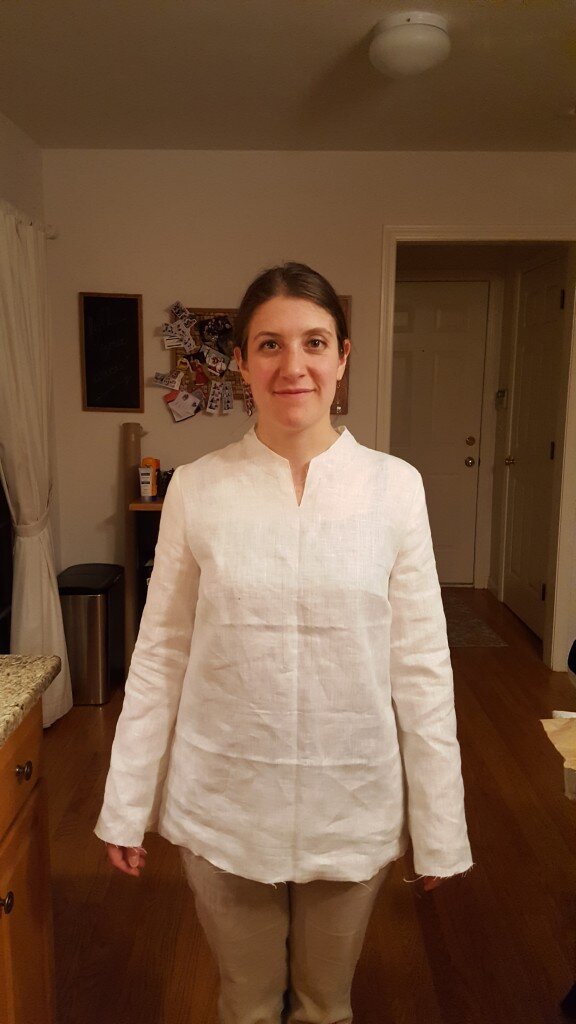
Plain linen tunic without finished collar, sleeves or bottom.
- I decided to dye the collar and sleeve hems solid green, but shibori the rest of the dress. I chose to try a folding shibori pattern, which I’ve actually never tried before. To do this, accordion fold the fabric the long ways.
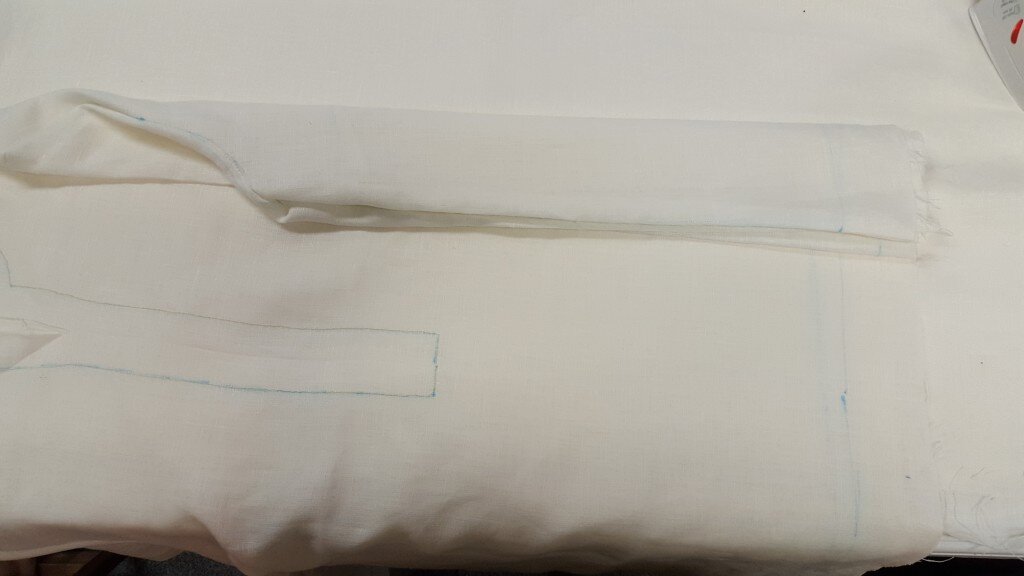
Fold shirt accordion style.
- I also used an iron to press the fabric.
- Then accordion fold the length into triangles.
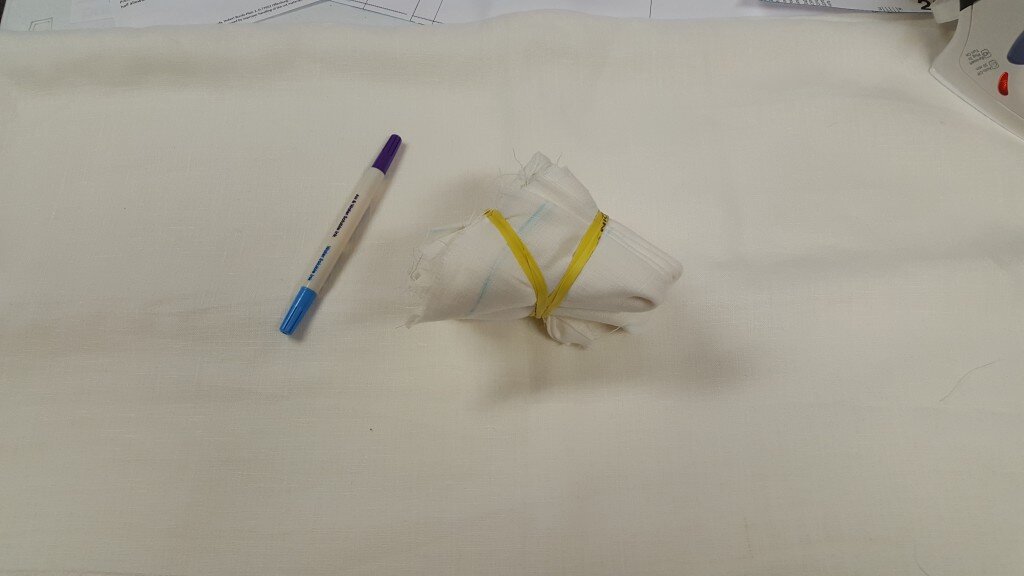
Fold into triangles accordion style and secure with rubber bands.
- When you reach the end, secure the fabric with rubber bands.
- Next prepare your dye. This Tulip Fabric dye required me to boil a gallon of water and mix with salt.
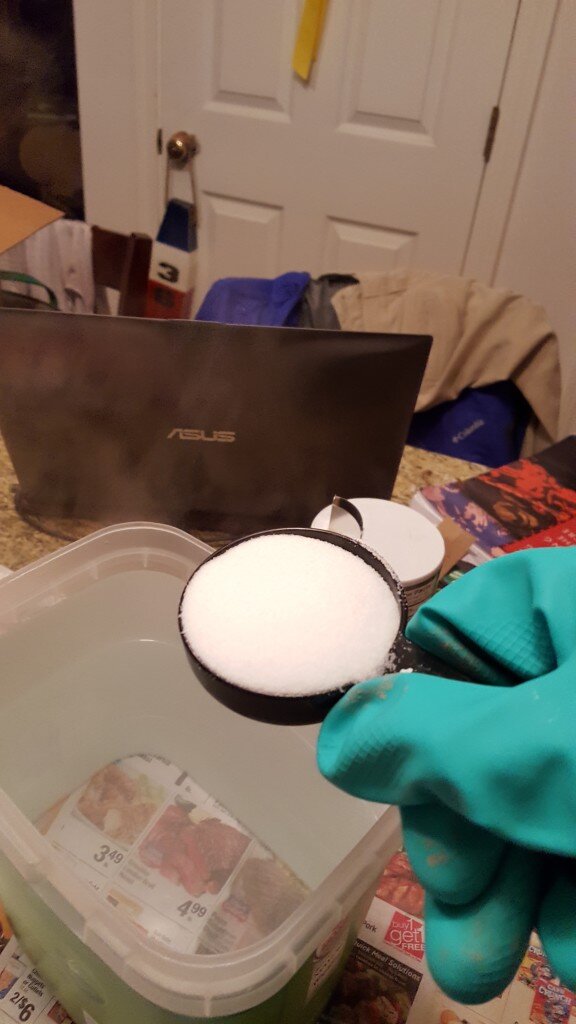
Add salt to steaming water.
- Add the dye in and stir. Make sure your area is completely covered since fiber reactive dye will permanently dye any natural surface (such as wood floors…)
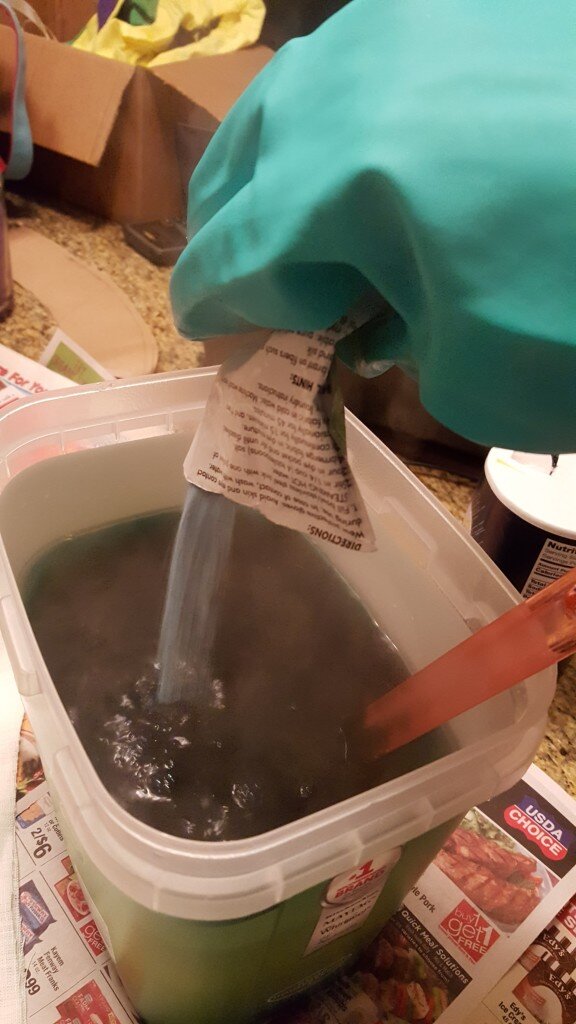
Add dye to bath.
- Once combined add your fabric to the dye and stir continuously for 15 minutes.
- After that, stir periodically for another 45 minutes.
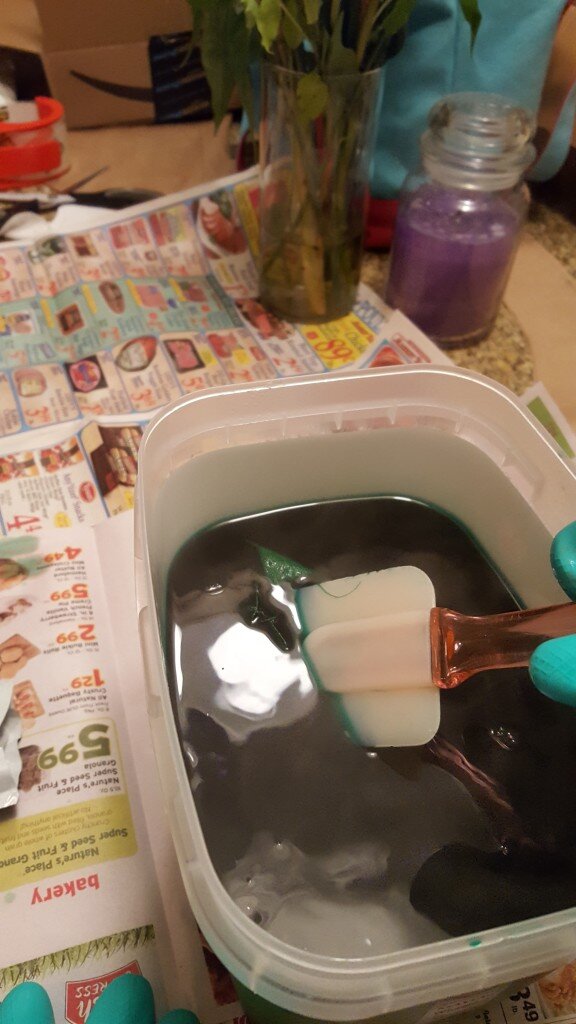
- Wash in cold water until the water runs clear.
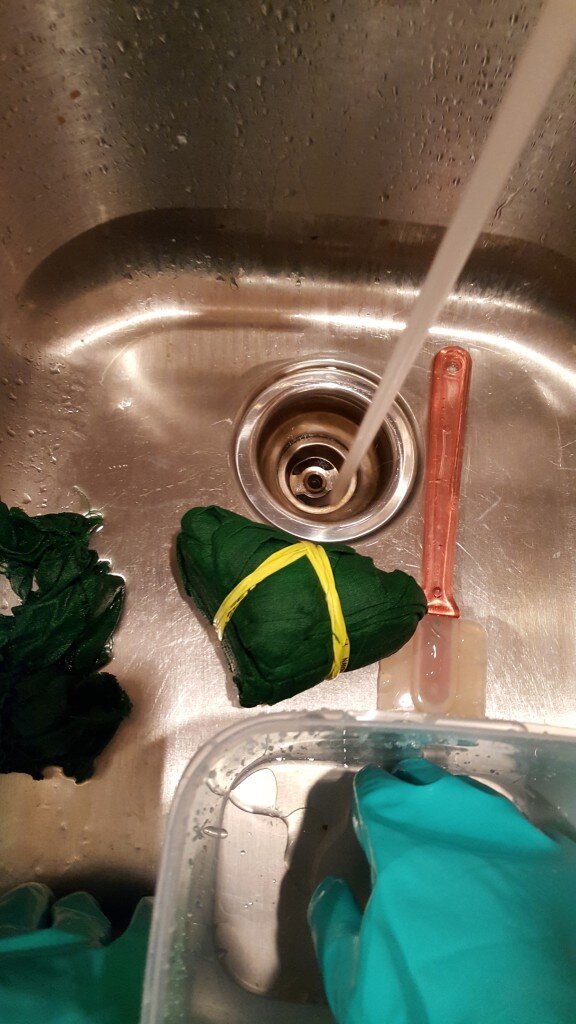
Rinse in cold water.
- I then hung my pieces to dry.
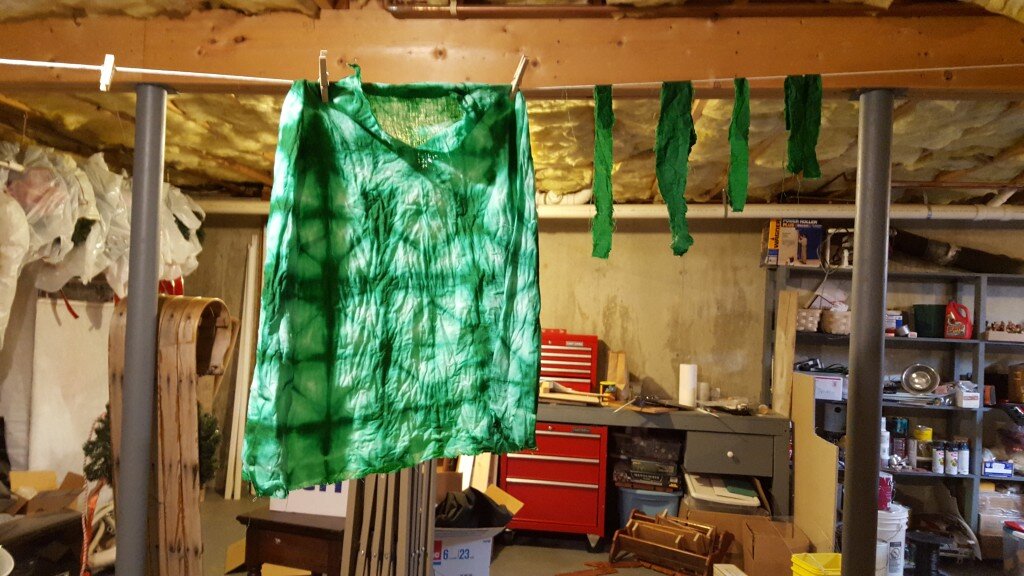
Hang to dry. (Ignore all the projects in my messy basement)
- Once dry, I finished my tunic neckline, sleeves, and bottom seam following the pattern instructions.
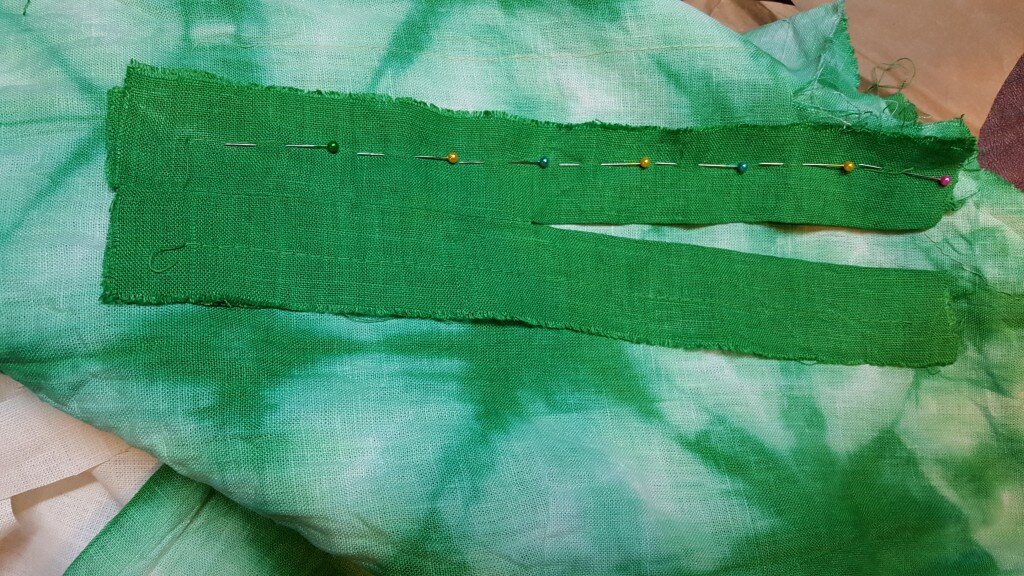
Finish tunic neckline, sleeves and bottom hem.
- When complete I threw it in the washing machine on warm with synthrapol to remove any additional dye that had not adhered to the fabric.
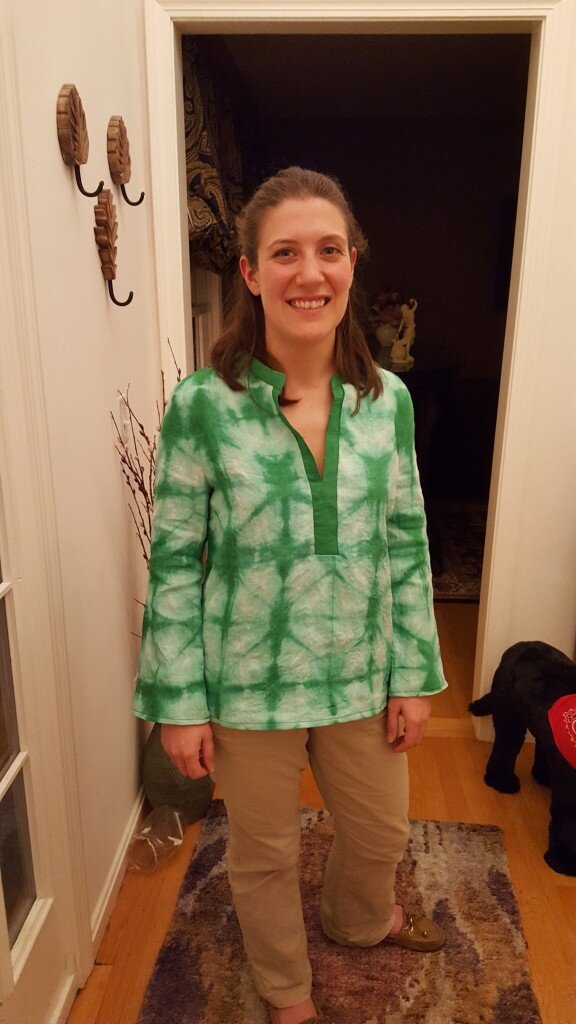
Voila! DIY Shibori tunic! I think folding may be my new favorite shibori technique!


This looks awesome! Remind me never to show you my past pitiful attempts at tie dye…
Hahaha. I would love to see them!